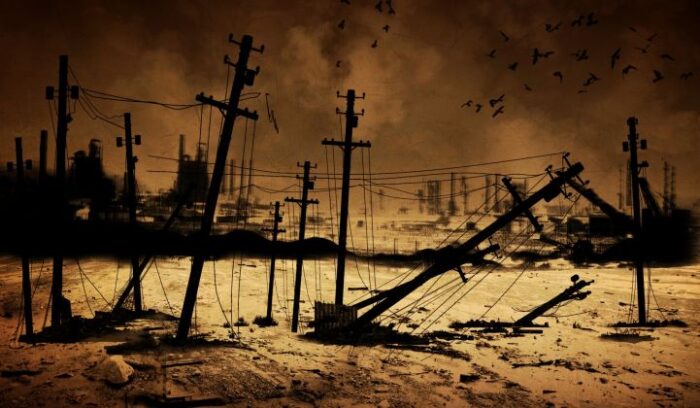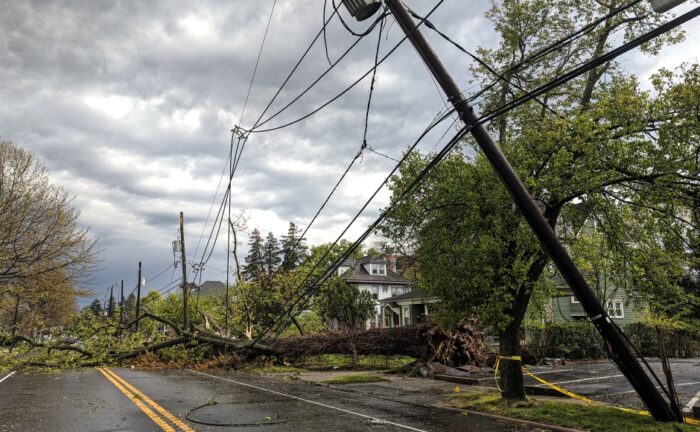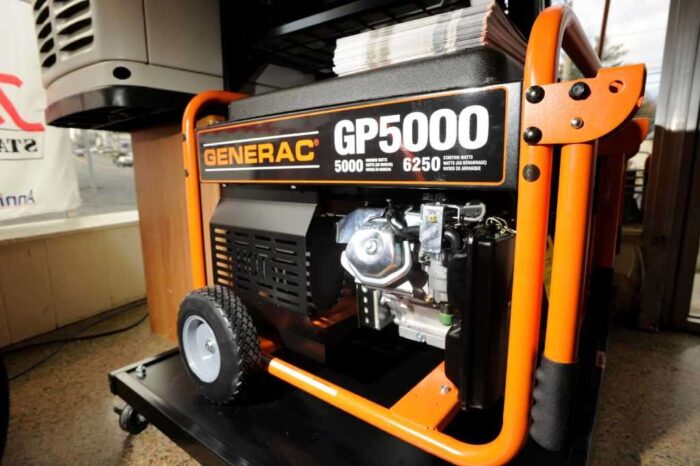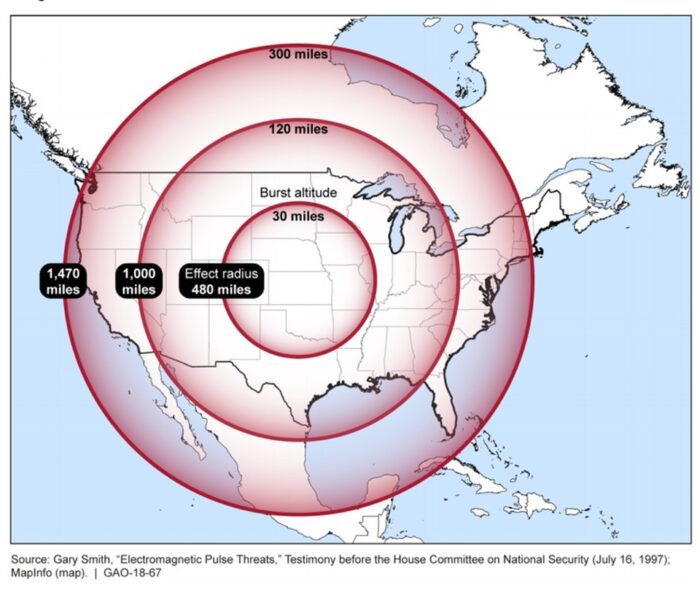Grogheads Zombie Survival Guide – The Generation Gap
As if a pandemic, global recession, and race riots weren’t enough to make 2020 a joyful year, mommy nature sent a hurricane into the east coast and up the I95 corridor to wreak havoc in my neck of the woods. This wasn’t a monster storm. It only rained for a few hours. But it brought high winds that dropped trees and tossed debris like beads during Mardi Gras. It caught my local power authority off guard and for over a week after the storm, many remained without power. Mine was out for 4 days. This also happened in the middle of a heat wave. Personally, I can rough it without power just fine, but it is tough on my family. They are quite fond of everything that has a plug. It was also hard on my 13 year old pug. That breed has trouble breathing under ideal conditions. Due to her advanced age and a myriad of health problems which would garner lots of street cred at an assisted living facility dinner table, she went into respiratory distress and spent a night on oxygen at the emergency vet. They felt her symptoms were so severe and indicative of enough health problems that we talked about putting her down. The happy ending was that our power came back, AC was restored and she hacks and coughs just like before the storm.
By: Jonathan Glazer
No one gives a rat’s ass about my problems, but I am relating this story as an intro to talk about generators. I don’t have one, yet. My thinking was that even without a generator, we could make do with other devices. We have power packs, which are essentially car batteries with air compressors, jump start cables and power outlets on them. You keep them charged and they provide enough juice for small appliances and phone charging. Lanterns lit up the house. Our perishable food went into a large cooler which was topped with a load of ice. Freezer items (mostly meat, which started to slowly defrost) are getting cooked now. I grilled every night, which I rather enjoy. We threw out some food, but not a whole lot. Frankly, there was stuff in the freezer which probably should have been tossed anyway. The power outage was survivable, even if not all that comfortable. So, first one must ask themselves if a generator is absolutely necessary.
When the dead rise, things will change for many of us. If you are already off the grid in a remote location with little outside interaction, you may not notice much difference. For those of us in suburbia, it will get bad quickly. Power may not be the first concern, but as sure as God made little green apples (lifted from “Once Upon a Time in Hollywood”), electricity will cease to run due to the collapse of the structures and institutions required to keep the juice flowing. As I have mentioned at other times, sheltering in place may or may not be an option for you when things start going bump in the night. Staying put may be possible in the short run, but not for very long. In very bad times, movement is life (lifted from “World War Z”) and you can only bring what you can carry or transport. Generators, even small ones are heavy. So if your zombie survival plan involves bugging out, the answer may be clear and you do not need a generator. However, there could be other scenarios for which sheltering in place makes sense, but there will be no electricity. For that, a genny can come in quite handy. I was holding out on getting one because they are not cheap. Plus, it has to be stored and maintained. You have to run it periodically so the seals remain tight, kind of like a car. You can’t let it sit for years and expect it to start up right away. Gas (or propane or diesel) has to be stored. If the generator runs on gas, I can assure you that it doesn’t get better with age. You have to add a stabilizer so it will last a year or so and then you pour it in your car gas tank and replace it. While running, the generator must be refilled with fuel and occasionally allowed to rest and cool down. Gas cans or propane tanks are heavy and have to be lifted and moved. Even if you are plumbed into a natural gas line, so you have a constant source of NG, that could stop if things get really bad. Plus you have no idea of what the NG is going to cost you until you get the bill. A week long outage with a generator big enough to power your house is certainly going to cost you more than the electrical charges as your generator is just not as efficient as the large ones used by your power company. Of course, the cost will be not a concern if the dead rise.
Allow me to focus momentarily. The first decision is whether you need a generator or not. When I was single, the answer was no. Mobility and firepower were more important. Now that I have a family, I need one. A short to medium length power outage requires alternate power for us now. If the source of the outage is an EMP (Electromagnetic Pulse) attack, anything electronic not hiding in a faraday cage will be useless and that most likely includes most generators. There is some controversy about that, but the worst case scenario will make all electronic gear into paperweights.
I am not an expert in generators at all. I am not an electrician. I am in danger of getting electrocuted every time I grab a pair of wire strippers. I am educating myself on the topic so I can make an informed choice. The next decision is will it be a standby or back up generator. A standby generator is usually a large piece of machinery wired and plumbed into the house to provide power for the entire house. It is usually connected to a natural gas line, but could run off a big propane tank or diesel fuel source. They typically are designed to automatically come on after a few seconds of power loss without any operator input. You could be asleep and it will kick on without awakening you. The next morning you might notice the noise of it running. That sounds desirable, but it does cost a lot. The unit is expensive, installation costs and connecting to the gas lines may not be possible in all areas. As I mentioned earlier, the NG may surprise you with the cost on the back end once power is restored and the bill arrives. Unlike gasoline or propane, which you have to buy up front, you have no control over what it is costing you. A back up generator is powered up manually when needed. You may have it stored out of the way, but if needed, you roll or carry it to where you want it, fill it with fuel and fire it up. You can plug extension cords into outlets on the unit or you can run it directly into your home’s electrical breaker panel to run specific electrical appliances or power specific outlets. Most localities require an interlock device. This shuts off the connection between your breaker panel and the outside power lines when running a generator. If you do not have such a device, the worker reconnecting the power line can get electrocuted from your generator power back feeding to the power line. No one wants that. A good electrician will set up the wiring of your back up generator so you plug it in and it will power only what you want it to power. You don’t want to waste your power on a swimming pool heater in this situation, but you may want your security lights to continue burning.
Once you decide whether to go with a standby or a back up unit, you next need to decide how big the generator is. Campers will bring a 1,000 watt unit with them to run lights and small appliances at a camp site. But that will probably not be sufficient for a house, even restricting what you want to power. There is math involved in terms of figuring out how many watts you need to run your refrigerator, lights, foot massager or whatever you feel is needed. Some appliances, such as refrigerators, need more wattage at startup but require less to run afterwards. Having too small a generator means you can’t do everything you want to do with it. It will also run at maximum RPM which isn’t good for the unit and may end up costing more in fuel than having a bigger unit. On the opposite end of the range, having too big a generator may be a problem if you have to move it as they are heavy, like really frigging heavy, even with wheels. A standby generator is installed in place. It doesn’t get moved. An electrician will tell you the proper size to get based on your electrical needs.
If you have decided on a back up generator, you have some other decisions to make. You have a choice of a standard generator or an inverter generator. The former work fine, but can provide what is known colloquially as “dirty” energy, which means they may be somewhat inconsistent and can have spikes in power which can damage sensitive electronics. Although most electronics that are fragile in this way are protected by transformers (the black boxes that are part of the power cords for your computers and cell phones) certain other electronics may not be so protected. Inverter generators are more expensive because they include onboard electronics that provide “clean” energy that is generally safer to run your easily damaged circuitry. Inverter gennies can run twice the cost of a similarly powered standard generator. They are also designed to be quieter.
This brings us to a big consideration regarding generators in the world filled with brain eating ghouls: Noise. Generators are loud. The neighbor across the street from me pulled out a large standard generator and cranked it up so they could run extension cords through every window. The unit was in their driveway facing my house and they were kind enough to run it all night. It sounded like the landscaper was mowing the lawn and using a leaf blower at all times. It was motherloving loud. Several other neighbors were running generators, but most were on the side of their house or in the backyard. While this added to the noise, the one screaming in my open windows was all I could hear. At one point, I looked out the window and noticed someone next door was using a chainsaw on a downed tree. I couldn’t hear it over the sound of the generator across the street.
Standby generators are loud also because they are usually very large, but may have some noise limiting features to make it less obnoxious. In addition to being annoying, the noise tips off the world that a) there are people in your house and b) that you have a freaking generator. In the case of a society ending event, like recently deceased people dining on not yet dead people, you may want to not advertise where you are. Silence can be your friend. And telling have nots that you have power may make it too inviting for them to stop by for a visit. If you have power, you probably have food and other things they want. Hopefully you also have guns and know how to use them. Following a big storm a few years back that knocked out power for many in my area, there were stories of generators getting stolen. One story had a taxpayer waking up to notice that the generator sound seemed off. When he went to investigate, he found that someone took his genny and left a running lawnmower in its place so there wouldn’t be tell tale silence.
Chat about it below, or in our forums, or hit our FaceBook page >>







